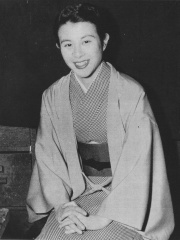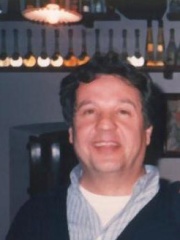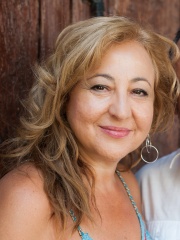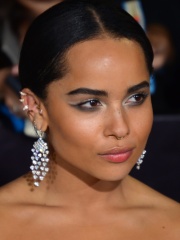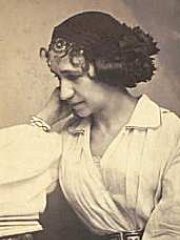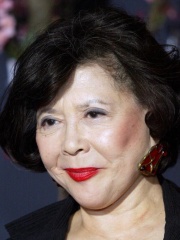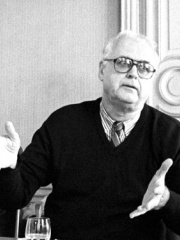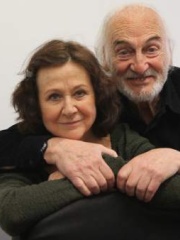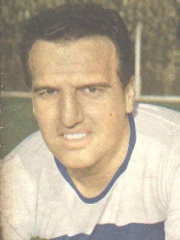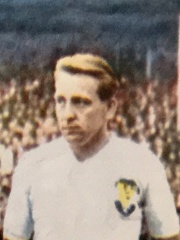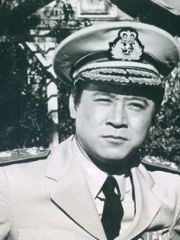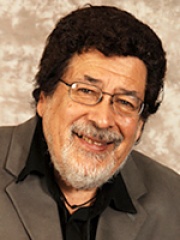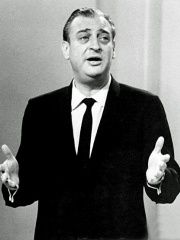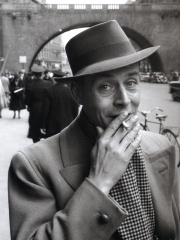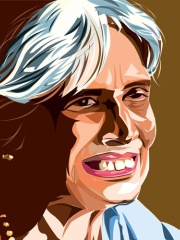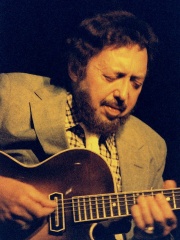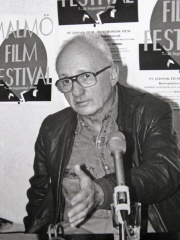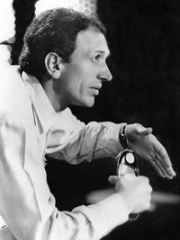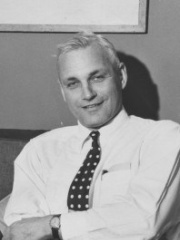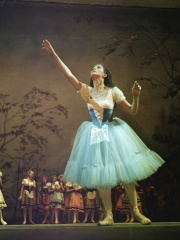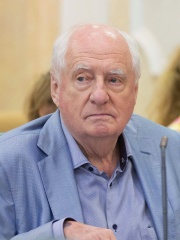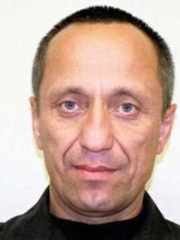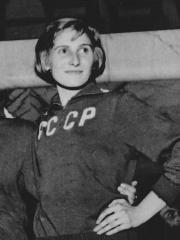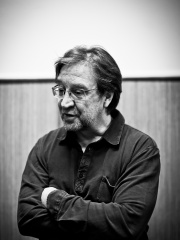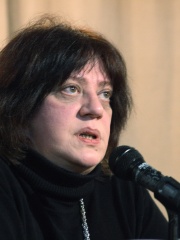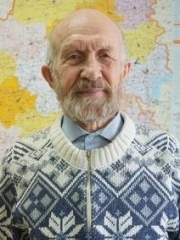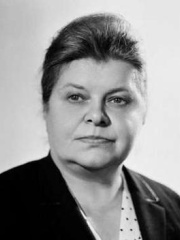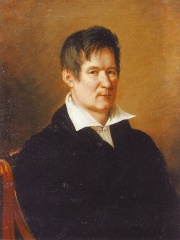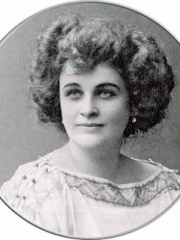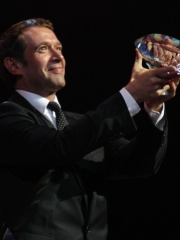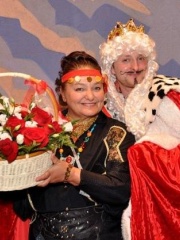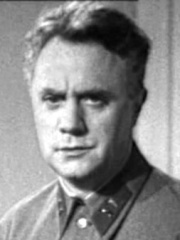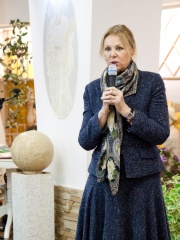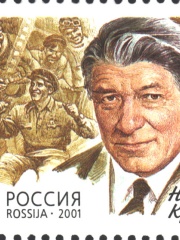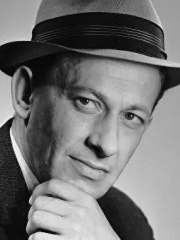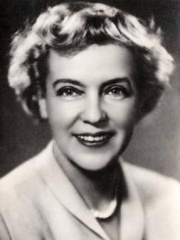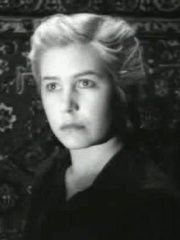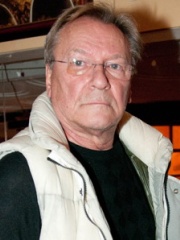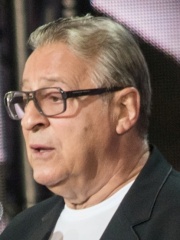ACTOR
Klara Rumyanova
1929 - 2004
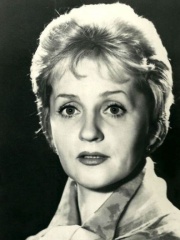
 Klara Rumyanova
Klara Rumyanova
Klara Mikhailovna Rumyanova (Russian: Кла́ра Миха́йловна Румя́нова; 8 December 1929 – 18 September 2004) was a Soviet and Russian actress, voice actress and singer. She was active from 1951 to 1999. Her childlike and endearing voice was easily recognized by generations of Soviet people from their early childhood, because she voiced numerous Russian animated films and sang countless children's songs. After the dissolution of the Soviet Union her songs have been heard even more, because of numerous releases of compact discs and tapes of children's songs from cartoons of the Soyuzmultfilm studio. Read more on Wikipedia
Her biography is available in 18 different languages on Wikipedia. Klara Rumyanova is the 4,210th most popular actor (down from 3,807th in 2024), the 1,662nd most popular biography from Russia (down from 1,557th in 2019) and the 79th most popular Russian Actor.
Memorability Metrics
Page views of Klara Rumyanova by language
Among ACTORS
Among actors, Klara Rumyanova ranks 4,210 out of 13,578. Before her are Yoshiko Kuga, Renato Pozzetto, Eliza Taylor, Ikue Ōtani, Carmen Machi, and Samantha Akkineni. After her are Zoë Kravitz, Kim Min-hee, Fernando Poe Jr., Johanne Luise Heiberg, Tsai Chin, and Roselyn Sánchez.
Most Popular Actors in Wikipedia
Go to all RankingsYoshiko Kuga
1931 - 2024
HPI: 56.78
Rank: 4,205
Renato Pozzetto
1940 - Present
HPI: 56.78
Rank: 4,206
Eliza Taylor
1989 - Present
HPI: 56.77
Rank: 4,207
Ikue Ōtani
1965 - Present
HPI: 56.77
Rank: 4,208
Carmen Machi
1963 - Present
HPI: 56.77
Rank: 4,209
Samantha Akkineni
1987 - Present
HPI: 56.77
Rank: 4,210
Klara Rumyanova
1929 - 2004
HPI: 56.77
Rank: 4,211
Zoë Kravitz
1988 - Present
HPI: 56.77
Rank: 4,212
Kim Min-hee
1982 - Present
HPI: 56.77
Rank: 4,213
Fernando Poe Jr.
1939 - 2004
HPI: 56.76
Rank: 4,214
Johanne Luise Heiberg
1812 - 1890
HPI: 56.76
Rank: 4,215
Tsai Chin
1933 - Present
HPI: 56.76
Rank: 4,216
Roselyn Sánchez
1973 - Present
HPI: 56.76
Rank: 4,217
Contemporaries
Among people born in 1929, Klara Rumyanova ranks 341. Before her are John Hejduk, Héctor Alterio, Wolfgang Peters, Eliseo Prado, Fred Martin, and Avet Terterian. After her are Walter Schleger, Ulu Grosbard, Ken Henry, James Shigeta, Ray Barretto, and Klausjürgen Wussow. Among people deceased in 2004, Klara Rumyanova ranks 206. Before her are Rodney Dangerfield, Hasse Ekman, Balamani Amma, Neil Campbell, Eugenio Garin, and Barney Kessel. After her are Fernando Poe Jr., Mikhail Voronin, Karel Kachyňa, Carlo Di Palma, Oscar Heisserer, and Paul Sweezy.
Others Born in 1929
Go to all RankingsJohn Hejduk
ARCHITECT
1929 - 2000
HPI: 56.92
Rank: 335
Héctor Alterio
ACTOR
1929 - 2025
HPI: 56.87
Rank: 336
Wolfgang Peters
SOCCER PLAYER
1929 - 2003
HPI: 56.81
Rank: 337
Eliseo Prado
SOCCER PLAYER
1929 - 2016
HPI: 56.79
Rank: 338
Fred Martin
SOCCER PLAYER
1929 - 2013
HPI: 56.77
Rank: 339
Avet Terterian
COMPOSER
1929 - 1994
HPI: 56.77
Rank: 340
Klara Rumyanova
ACTOR
1929 - 2004
HPI: 56.77
Rank: 341
Walter Schleger
SOCCER PLAYER
1929 - 1999
HPI: 56.76
Rank: 342
Ulu Grosbard
FILM DIRECTOR
1929 - 2012
HPI: 56.75
Rank: 343
Ken Henry
SKATER
1929 - 2009
HPI: 56.75
Rank: 344
James Shigeta
ACTOR
1929 - 2014
HPI: 56.72
Rank: 345
Ray Barretto
MUSICIAN
1929 - 2006
HPI: 56.72
Rank: 346
Klausjürgen Wussow
ACTOR
1929 - 2007
HPI: 56.56
Rank: 347
Others Deceased in 2004
Go to all RankingsRodney Dangerfield
COMEDIAN
1921 - 2004
HPI: 57.01
Rank: 200
Hasse Ekman
FILM DIRECTOR
1915 - 2004
HPI: 56.99
Rank: 201
Balamani Amma
WRITER
1909 - 2004
HPI: 56.98
Rank: 202
Neil Campbell
BIOLOGIST
1946 - 2004
HPI: 56.96
Rank: 203
Eugenio Garin
PHILOSOPHER
1909 - 2004
HPI: 56.92
Rank: 204
Barney Kessel
MUSICIAN
1923 - 2004
HPI: 56.88
Rank: 205
Klara Rumyanova
ACTOR
1929 - 2004
HPI: 56.77
Rank: 206
Fernando Poe Jr.
ACTOR
1939 - 2004
HPI: 56.76
Rank: 207
Mikhail Voronin
GYMNAST
1945 - 2004
HPI: 56.72
Rank: 208
Karel Kachyňa
FILM DIRECTOR
1924 - 2004
HPI: 56.57
Rank: 209
Carlo Di Palma
FILM DIRECTOR
1925 - 2004
HPI: 56.57
Rank: 210
Oscar Heisserer
SOCCER PLAYER
1914 - 2004
HPI: 56.46
Rank: 211
Paul Sweezy
ECONOMIST
1910 - 2004
HPI: 56.46
Rank: 212
In Russia
Among people born in Russia, Klara Rumyanova ranks 1,662 out of 3,761. Before her are Natalia Bessmertnova (1941), Mark Zakharov (1933), Mikhail Popkov (1964), Viktoria Mullova (1959), Valentina Prudskova (1938), and Yuri Shevchuk (1957). After her are Tatyana Tolstaya (1951), Albert Razin (1940), Vera Panova (1905), Vasily Stasov (1769), Mikhail Voronin (1945), and Teffi (1872).
Others born in Russia
Go to all RankingsNatalia Bessmertnova
ACTOR
1941 - 2008
HPI: 56.79
Rank: 1,656
Mark Zakharov
FILM DIRECTOR
1933 - 2019
HPI: 56.79
Rank: 1,657
Mikhail Popkov
EXTREMIST
1964 - Present
HPI: 56.79
Rank: 1,658
Viktoria Mullova
MUSICIAN
1959 - Present
HPI: 56.78
Rank: 1,659
Valentina Prudskova
FENCER
1938 - 2020
HPI: 56.77
Rank: 1,660
Yuri Shevchuk
SINGER
1957 - Present
HPI: 56.77
Rank: 1,661
Klara Rumyanova
ACTOR
1929 - 2004
HPI: 56.77
Rank: 1,662
Tatyana Tolstaya
WRITER
1951 - 2021
HPI: 56.77
Rank: 1,663
Albert Razin
PHILOSOPHER
1940 - 2019
HPI: 56.76
Rank: 1,664
Vera Panova
WRITER
1905 - 1973
HPI: 56.73
Rank: 1,665
Vasily Stasov
ARCHITECT
1769 - 1848
HPI: 56.72
Rank: 1,666
Mikhail Voronin
GYMNAST
1945 - 2004
HPI: 56.72
Rank: 1,667
Teffi
WRITER
1872 - 1952
HPI: 56.72
Rank: 1,668
Among ACTORS In Russia
Among actors born in Russia, Klara Rumyanova ranks 79. Before her are Vladimir Mashkov (1963), Natalya Bondarchuk (1950), Mikhail Zharov (1899), Natalya Seleznyova (1945), Boris Markov (1924), and Natalia Bessmertnova (1941). After her are Nikolai Kryuchkov (1911), Yevgeny Yevstigneyev (1926), Marina Ladynina (1908), Inna Makarova (1926), Sergey Shakurov (1942), and Gennady Khazanov (1945).
Vladimir Mashkov
1963 - Present
HPI: 56.94
Rank: 73
Natalya Bondarchuk
1950 - Present
HPI: 56.89
Rank: 74
Mikhail Zharov
1899 - 1981
HPI: 56.85
Rank: 75
Natalya Seleznyova
1945 - Present
HPI: 56.84
Rank: 76
Boris Markov
1924 - 1977
HPI: 56.81
Rank: 77
Natalia Bessmertnova
1941 - 2008
HPI: 56.79
Rank: 78
Klara Rumyanova
1929 - 2004
HPI: 56.77
Rank: 79
Nikolai Kryuchkov
1911 - 1994
HPI: 56.69
Rank: 80
Yevgeny Yevstigneyev
1926 - 1992
HPI: 56.65
Rank: 81
Marina Ladynina
1908 - 2003
HPI: 56.48
Rank: 82
Inna Makarova
1926 - 2020
HPI: 56.39
Rank: 83
Sergey Shakurov
1942 - Present
HPI: 56.35
Rank: 84
Gennady Khazanov
1945 - Present
HPI: 56.27
Rank: 85
